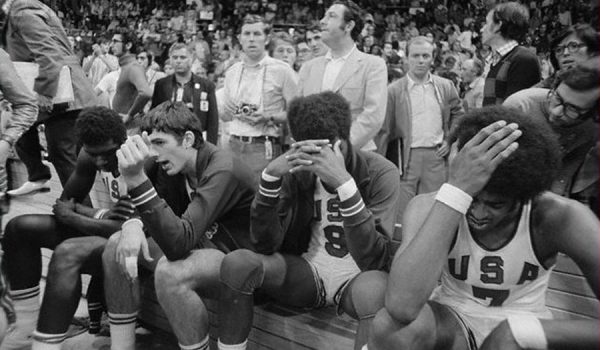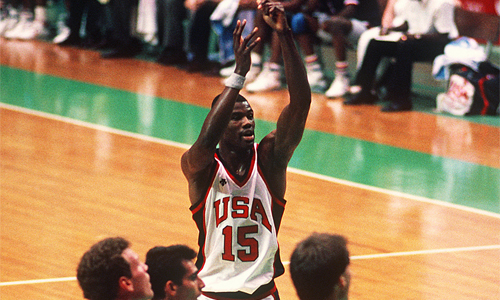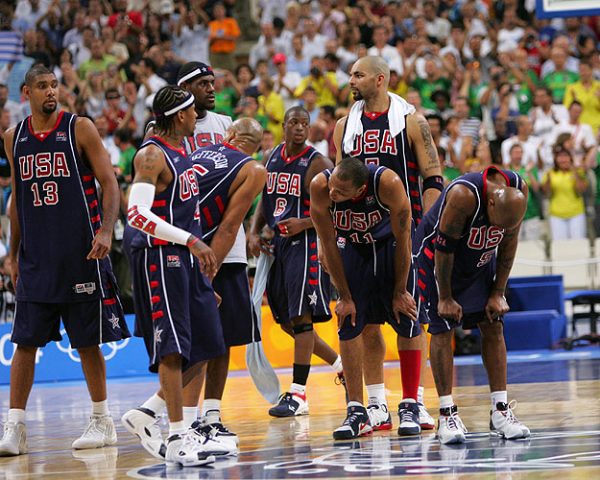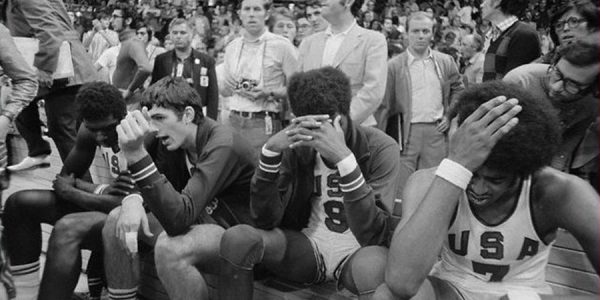Since Men’s basketball tournaments began in the Summer Olympics back in 1936, there were only four occasions of Team USA not winning the gold medal. In 1972, when the Soviet Union won in probably the most famous Olympic basketball game of all-time; in 1980, when the Americans led a boycott of the Moscow Olympics; in 1988, when the USSR won gold while the final team of non-NBA players took bronze; and in 2004, with Argentina taking gold, in what resulted in a massive overhaul to the way the international tournament was perceived in the United States, and the birth of the Redeem Team.
1972

Heading into the Olympic tournament, Team USA was 63-0 in the Olympics, winning the previous seven tournaments. With the Soviets leading 49-48, Doug Collins was fouled on his way for an easy two points, leading to two free throws. Right after making the first one and tying the game, while he was already in his shooting motion for the second shot, the horn from the scorer’s table sounded. The referee (Renato Righetto) turned away, and while Collins kept shooting and making it. The game was “live” after he made the shots, but the Soviet assistant coach Sergei Bashkin charged out of the team’s designated bench area to the scorer’s table asserting a time out was called by head coach Vladimir Kondrashin. The eventual ruling was to give the Soviets an inbound play with three seconds left on the clock.
More clock malfunction led to the horn marking the end of the game being sounded after one second. The Soviets failed to get the ball to Aleksandr Belov under the basket, and combined with the horn made everyone believe that the Americans won the game. But the horn sounded probably because the person working the clock was still trying to reset it, as it showed 50 seconds left before the inbound play. And so, after the court was cleared, a third inbound play was called.
On the previous play, center Tom McMillen was present to disturb the inbound pass which worked well. However, on this play, official Artenik Arabadjian prepared to put the ball into play, he gestured to McMillen. McMillen responded by backing several feet away from Edeshko, which gave Edeshko a clear view and unobstructed path to throw a long pass down the court. There was no rule at the time which stated McMillen had to back away from the line. This time, Belov caught the ball, beating two Americans in the air. When all three landed, he was positioned to score an uncontested layup, resulting in a 50-49 win.
1980
The Olympics in Moscow were boycotted by 65 countries, including the United States. Yugoslavia won the gold medal, and it was the only time in Olympics basketball history with the United States team receiving any medals.
1988

This was the last Olympics tournament with the American team sending non-NBA players. They did have David Robinson, Dan Majerle, Mitch Richmond, Charles Smith, Danny Manning and Stacey Augmon among others, but the team failed to reach the final, losing to the USSR 82-76 in the semis, and then beating Australia to capture the bronze medal.
2004

The 1988 disappointment led to the first Dream Team, and Olympic gold in 1992, 1996 and 2000. In 2004, with Carmelo Anthony, Dwyane Wade and LeBron James after their rookie seasons, Tim Duncan and Allen Iverson as well, came the first and only time that a team consisting of NBA players didn’t win the gold medal in the Olympics (it also happened in the 2002 and 2006 world championships), losing to Puerto Rico and Lithuania during the group stage, and in the semifinal getting beaten by Argentina. They took home bronze, which no one thought was impressive.
This loss, along with another disappointment in the 2006 world championships, led to the Redeem team in 2008, when Kobe Bryant joined the team along with James, Wade, Chris Paul, Dwight Howard and others. It wasn’t just about putting together a team with the biggest stars available, but making sure the pieces fit, and personality played a big part, bigger than before. In 2008 and 2012 team USA faced Spain in the final, winning in relatively close games. The team’s dominance in the 2014 world championships despite not sending the best team possible, nor is the 2016 squad the most stacked, doesn’t change the feeling that it’s going to be extremely one sided on the way to another gold.
